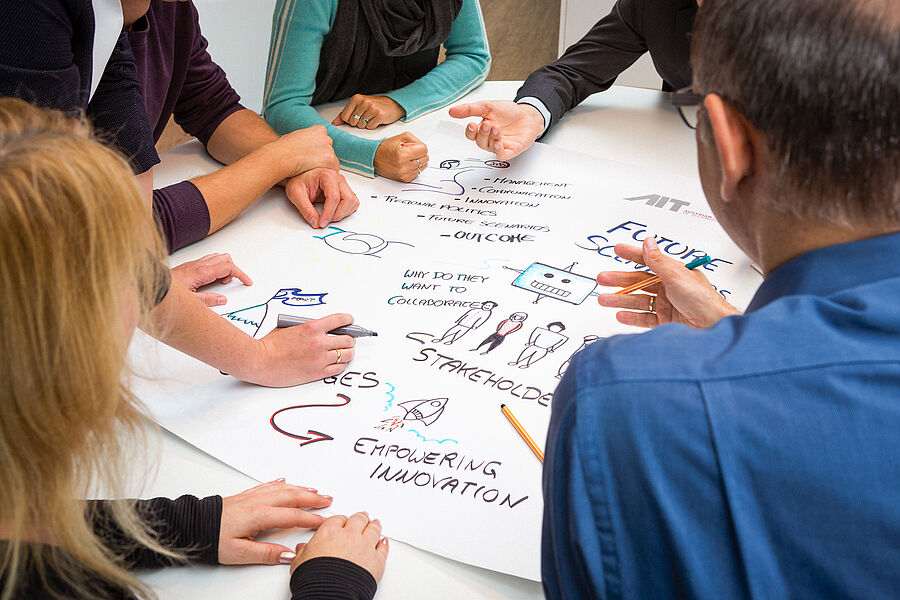Accompanying and ex-post evaluation of BMWK funding in the 7th Energy Research Programme
With the Climate Action Plan 2050 and the Climate Action Program 2030, the German Federal Government has set ambitious goals for reducing energy consumption and CO2 emissions as well as increasing the share of renewable energies. The 7th Energy Research Program plays a key role in this by establishing a link between the long-term goals of the Federal Government and the timelines of economic technology research. The aim is for government support of technology development and innovation to make a significant contribution to accelerating the transformation, strengthening the industrial location, and providing overall societal risk prevention.
In 2021, the launch of the accompanying evaluation of the funding measures and the accompanying measures of the BMWK - Federal Ministry for Economic Affairs and Climate Action - within the framework of the 7th Energy Research Program (EFP) took place. Previous evaluations in the field of research, technology, and innovation primarily focused on the effectiveness and efficiency of programs. Classic evaluations center on the question of the extent to which (predefined) program goals were achieved and whether an appropriate cost-benefit ratio was achieved. In this accompanying evaluation, we are broadening the perspective by shifting from a results-oriented approach to a more reflective and formative evaluation approach that focuses on long-term impacts and is more aligned with transformative innovation policy.
Coordinated by the AIT Center for Innovation Systems and Policy, in cooperation with the Center for Energy, KMU Forschung Austria, and Kerlen Evaluation, the accompanying evaluation provides analyses, reflections, and ongoing recommendations as a basis for managing and continuously improving the program ("program learning"). The evaluation focuses on the projects funded under the funding announcement, real-world laboratories, and accompanying measures. A special feature of the program is its emphasis on the systemic nature of transformation processes, cross-technology issues, system integration, and sector coupling. These analyses and recommendations will also flow into the preparation and implementation of the 8th Energy Research Program, which is designed as a mission-oriented program.
Start: 02/2021
End: 12/2025
Funded by: Federal Ministry for Economic Affairs and Climate Action
Contact: Michael Dinges



